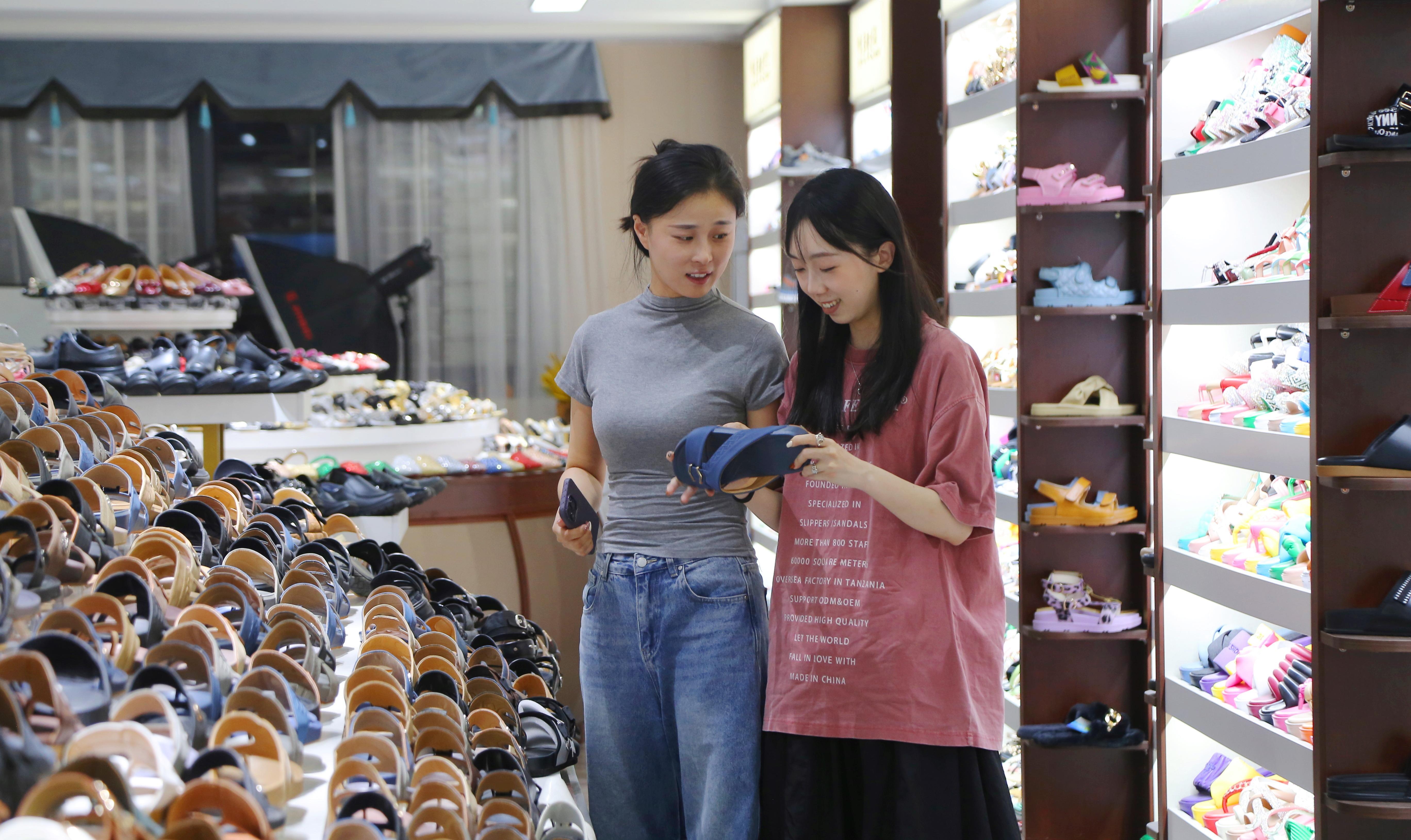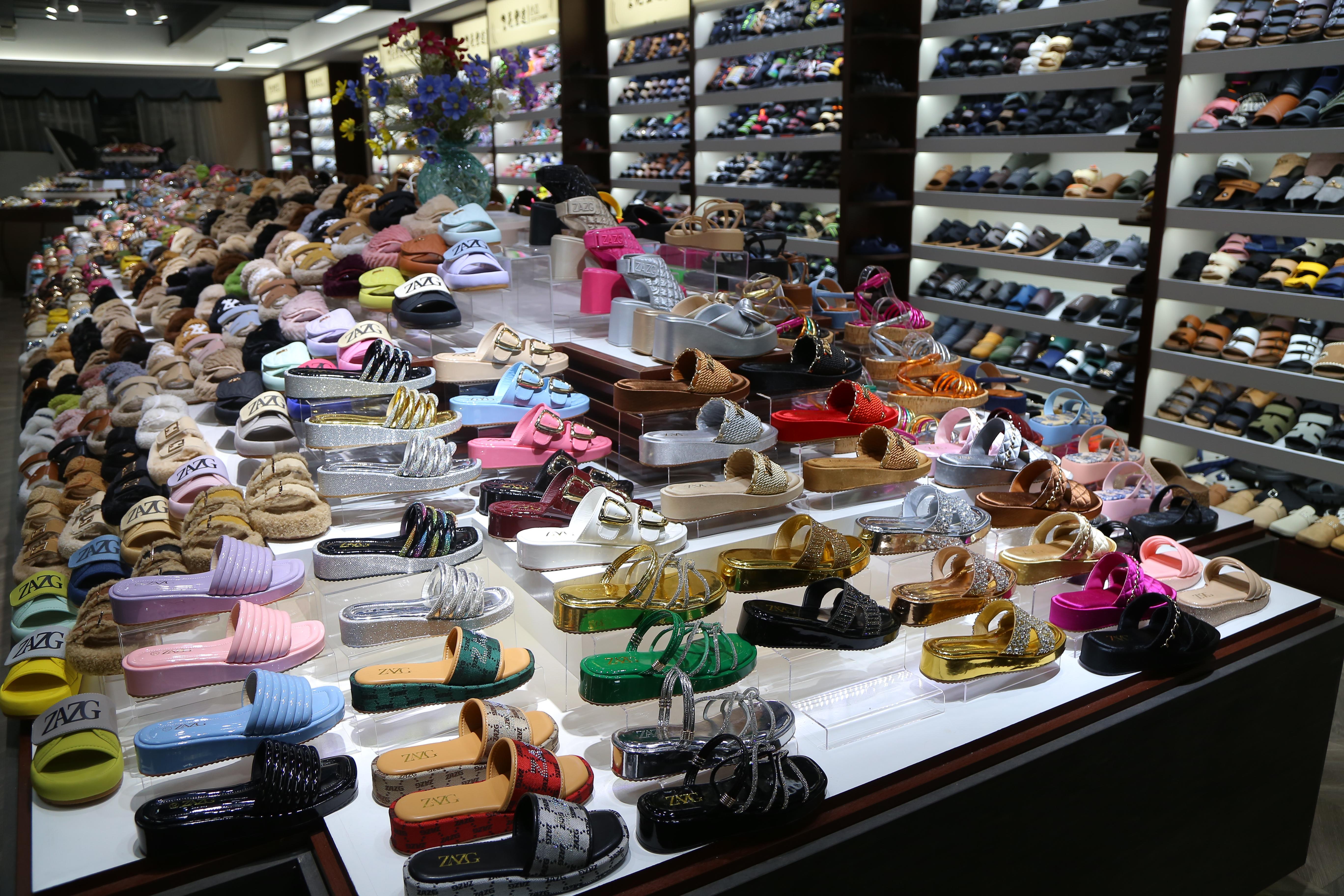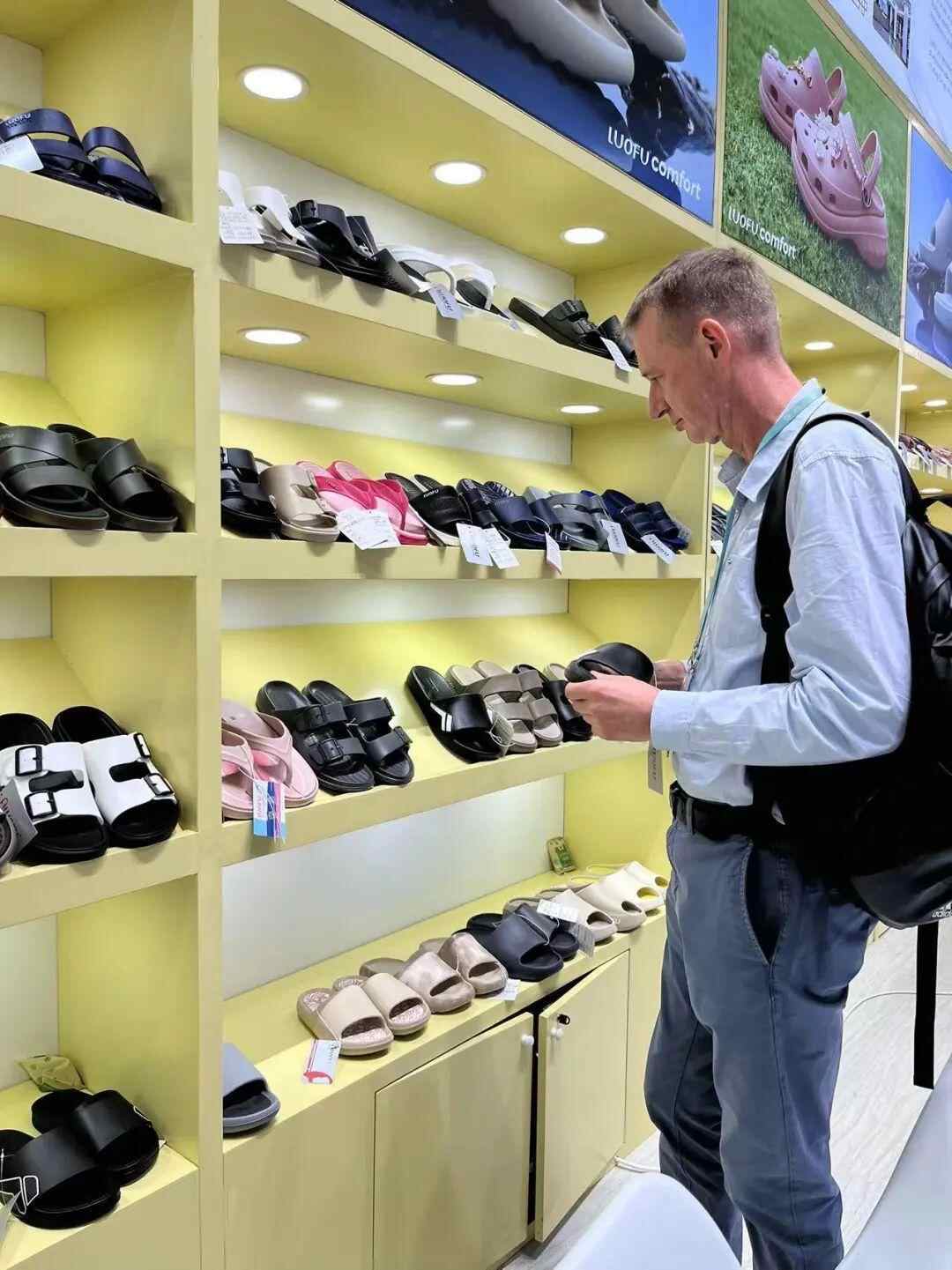Recently, Quan Hongchan won a gold medal in the women's 10m synchronised platform diving at the Paris Olympics. Her slippers sparked a discussion on social media. In the eyes of Chinese netizens, "wearing slippers" has become a cultural characteristic of people from Guangdong. Indeed, Guangdong is a major global producer of slippers and plastic footwear, with Jieyang known as the "City of Chinese Plastic Fashion Shoes". Nowadays, footwear from Jieyang is sold to over 170 countries and regions worldwide, nearly covering the entire globe.

Jieyang is known as the "City of Chinese Plastic Fashion Shoes", with the footwear industry being a traditional pillar industry. In 2023, the total output value of Jieyang's footwear industry exceeded 30 billion yuan. There are 182 footwear manufacturing enterprises above the designated size, generating output value of 15.11 billion yuan, accounting for 5.8% of the city's total industrial output value. Currently, there are over 3,000 businesses in Jieyang engaged in the manufacturing and sales of finished shoes, soles, and supporting shoe materials. The industry employs approximately 250,000 people and boasts more than 200 independent brands. Furthermore, well-known domestic and international brands collaborate with companies in Jieyang for production purposes.

In recent years, footwear manufacturing enterprises in Jieyang have invested nearly 5 billion yuan in promoting technological research and development, brand building, and talent acquisition, among other fields. This investment has yielded a series of innovative achievements, continuously enhancing the industry's competitive advantage. Jieyang has accumulated over 1,100 patents related to footwear products and production technologies.
Today, the footwear manufacturing industry in Jieyang covers the entire supply chain, including raw material production, industrial design, mold manufacturing, ingredient processing, finished product manufacturing, logistics and distribution, and market transactions. The industry chain is complete, and the supply chain system is relatively well-developed. Most footwear manufacturers have mechanized their production and adopted computer numerical control (CNC). Footwear products have become diversified from primarily plastic slippers to EVA, PU, fabric shoes, craft shoes, and leather shoes. This evolution has formed a regional characteristic footwear industry cluster in Jieyang.
Jieyang's footwear industry not only boasts advanced manufacturing enterprises but also has a well-developed sales network. Jieyang hosts the largest shoe material professional market in the eastern Guangdong region, the Yuedong Shoe Material Market, known for its wide variety, competitive prices, and excellent service and has established the Jieyang International Footwear Trade City. Jieyang is also China's largest production and export base for plastic shoes. Local authorities actively implement the "going global" strategy, supporting enterprises in participating in various trade fairs and exhibitions.

"Shenlubao now produces over 50 million pairs of shoes annually, with 70% of its products targeted for export. It is registered in 173 countries including the United States, Italy, and Hungary, and has exclusive agent agreements in 40 countries," explained Zheng Jiechun from Jieyang Shenlubao Footwear Ltd.
At Guangdong Liangfengda Industrial Co., Ltd.,the showroom shelves are filled with a diverse array of women's sandals. "Our company specializes in craft shoes primarily aimed at the foreign market, exporting to over 100 countries and regions worldwide. Our products are particularly popular among young people in European countries like Spain, as well as in North African countries such as Morocco and Algeria," explained sales representative Zheng Yixuan. "At the 135th Canton Fair this year, the company showcased nearly 100 product designs, with intended deals amounting to approximately 2 million dollars."
Source: Lingnan on the Cloud
















